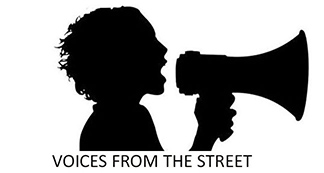Carol Goar
June 22, 2007
The way to become an expert on poverty in Canada is to get a university degree, run a social agency, join a think-tank or work as a welfare official.
Living in poverty doesn’t count. Knowing how it feels to be evicted, stigmatized, dependent on charity or forced to abide by rules devised by middle-class bureaucrats doesn’t count either.
“Professional interventions are not as brilliant in life as they seem on paper,” said Mike Creek, a cancer survivor who lost his job, his home, his savings – everything but his spunk – to the disease.
“If you are serious about poverty, you’d better have a few poor people at the table.”
Creek is one of 14 graduates of a program called Voices from the Street. The 12-week course equips men and women who have experienced poverty and homelessness to speak out, challenge society’s stereotypes and become community leaders.
Their “convocation” took place in the Malcomson Theatre at the Centre for Addiction and Mental Health. The audience straggled in and out. The program was a bit ragged. Nobody cared.
Author and anti-poverty activist Pat Capponi, the group’s coach, mentor, cheerleader and den mother, proudly introduced the class of 2007.
“We are more than a speakers’ bureau,” she said. “We have overcome the barriers of shame, passivity and fear. We’ve learned that recovery is possible – but we can’t wait for the system to recover us.”
Then she invited the graduates to tell their stories.
Dawnmarie Harriott, who fled an abusive relationship, talked about her struggle to hang onto the one thing that mattered in her life her son. She had trouble keeping enough food in the fridge. She got behind in her rent. The Children’s Aid Society visited to see if she was a fit parent – and concluded, to her relief, that she was.
But the reprieve didn’t last. One night, she had to work late and didn’t get to the daycare centre by closing time. When she arrived, Calvin had been taken away by Children’s Aid.
Harriott now sees him for four hours on Saturdays. She spends the rest of the week trying to prove she deserves her son back. “I would love to be part of a panel to show the Children’s Aid Society the perspective of a parent who loses a child,” Harriott said.
Mark Dukes grew up in a violent home. He escaped any way he could drugs, liquor, bravado. “That was the way I drowned out all the sounds in my life,” he recalled. “Everybody thought I was a budding alcoholic or pothead.”
If someone had recognized his isolation, rather than slapping a label on him, he might have been spared years of addiction and pain.
At 33, he is finally pulling himself together. He wants to share the harsh life lessons he’s learned. “Include people with first-hand knowledge of exclusion in your ranks,” he said. “Let us help.”
Miguel Dyer thought he could survive on the streets as a teenager. He soon got sucked into the world of gangs and drugs and guns. He enjoyed the money and parties and power. Then he was asked to commit serious crimes. He was scared, but couldn’t get out. He hid in another part of town, but his associates tracked him down. Finally he plunged into mental illness, poverty and homelessness.
He is slowly rebuilding his life, working at a cafe that employs psychiatric survivors. He recently attended a fundraising barbecue in the Jane-Finch neighbourhood to help the family of Jordan Manners, the 15-year-old student shot at school last month, pay for his funeral. The park was full of low-income kids facing the same temptations that once seduced him. “They need someone they can trust to talk to.”
None of the stories – which involved incest, mental illness, cancer, racial discrimination and sexual abuse – fit the conventional image of poverty.
None of the speakers wanted pity. They wanted to help find answers.
Credit: Toronto Star
